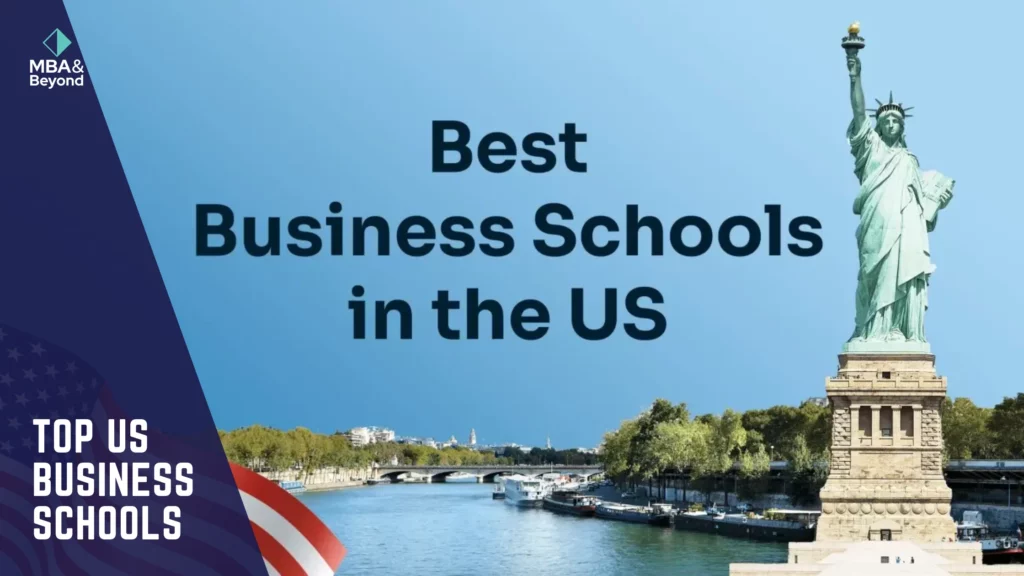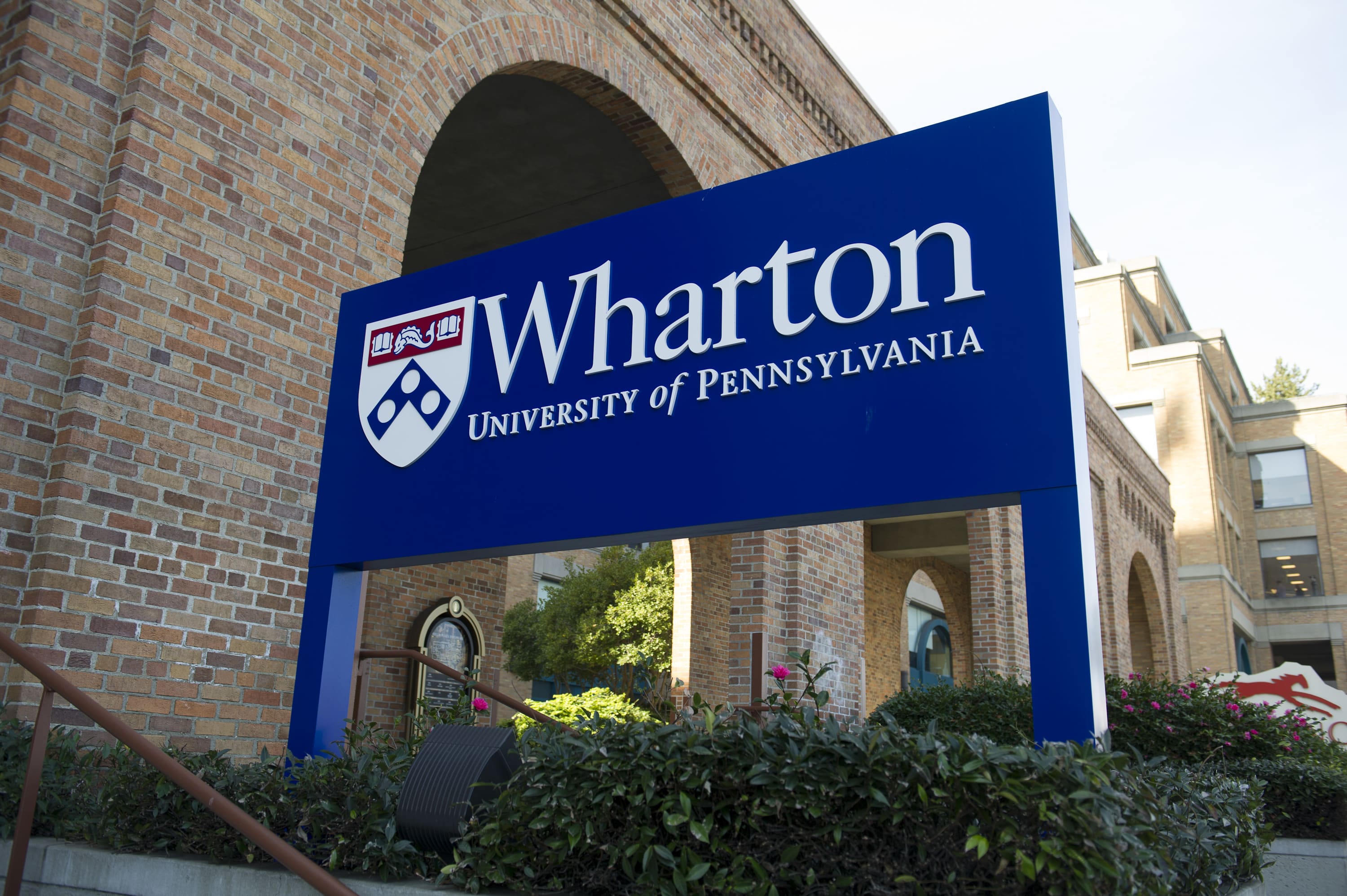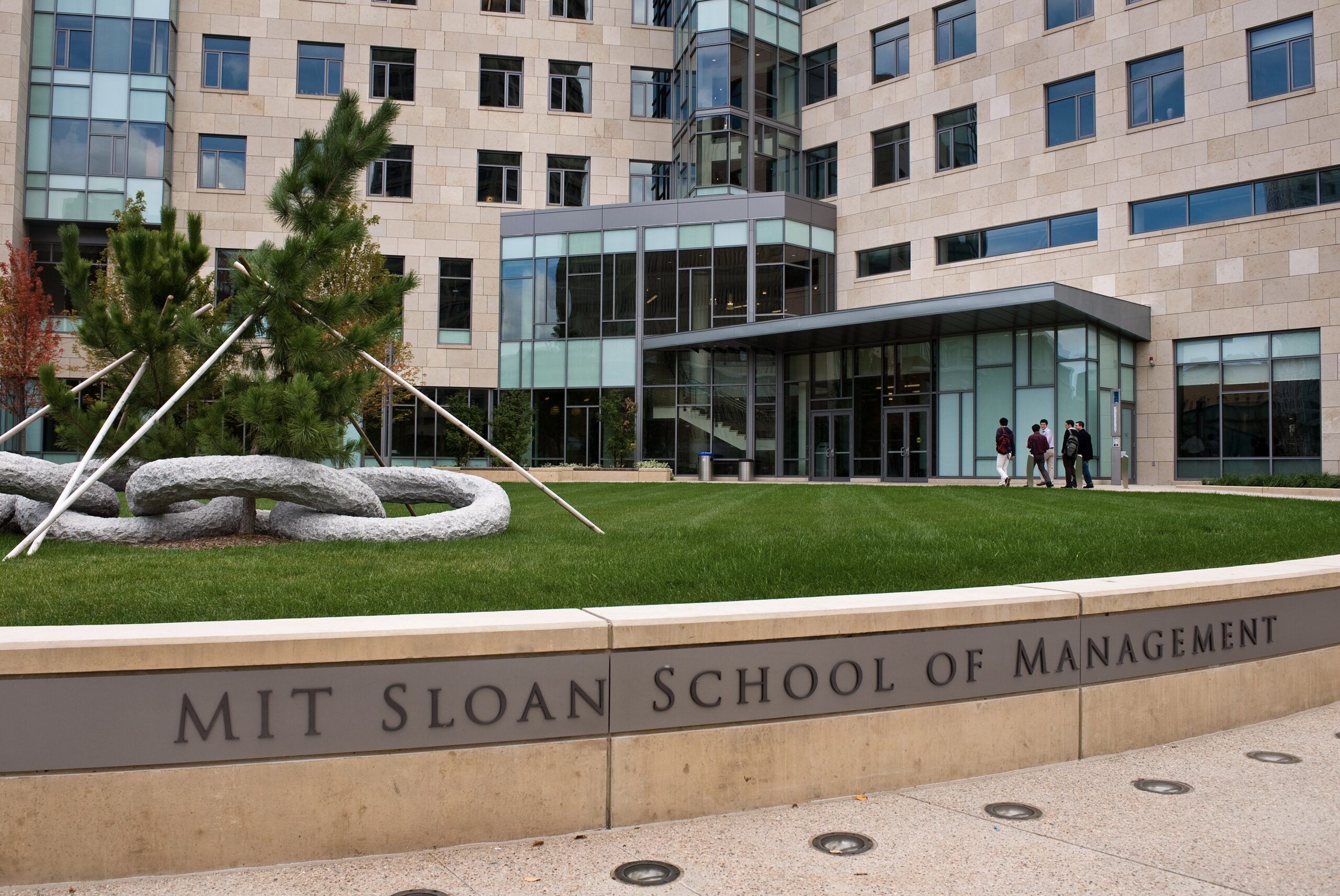Top US Business Schools

Choosing the right business school can be a game-changer for your career, and the United States consistently ranks as one of the best destinations for business education. With a global reputation for academic excellence, robust alumni networks, and industry-leading programs, the top US business schools are known for shaping the next generation of business leaders.
Whether your goal is to lead a Fortune 500 company, start your own venture, or break into a new industry, studying at a top US business school can open doors you never imagined. In this blog, we’ll explore why the US remains a hub for business education, what makes these schools stand out, and how you can join their ranks.
Why Choose a US Business School
The United States is home to many of the world’s most prestigious business schools, which are consistently ranked at the top by global publications like Forbes and the Financial Times. But what makes a US business school so attractive to international students?
Global Reputation and Career Opportunities
US business schools dominate global rankings, with names like Harvard Business School and Stanford Graduate School of Business topping the charts year after year. These institutions are known for producing influential alumni who lead top companies and drive innovation worldwide. For instance, Wharton School graduates have an average starting salary of $150,000, making it a clear indicator of the value of a US degree.
Cutting-Edge Curriculum and Resources
Top US business schools offer innovative programs that blend theoretical knowledge with practical application. With resources like state-of-the-art research centers, entrepreneurial hubs, and global business simulation labs, students gain hands-on experience to tackle real-world challenges.
Networking Opportunities
The strength of an alumni network can be a game-changer. Top US business schools boast expansive alumni networks that span industries and countries, providing lifelong connections and career support. For example, the Harvard Business School alumni network includes leaders in every major industry, giving graduates a significant edge in their careers.
Cultural and Educational Diversity
The US is known for its diversity, and top business schools reflect this. International students make up a significant percentage of the student body, creating an environment rich in cultural exchange. This diversity prepares students for the global nature of today’s business world.
Employment Rates and ROI
The investment in a US business school pays off significantly. Many top schools report employment rates of over 90% within three months of graduation. Additionally, the average salary of graduates from schools like MIT Sloan and Columbia Business School often exceeds $130,000 annually, ensuring a strong return on investment.
Criteria for Selecting a Top Business School
When evaluating business schools, it’s essential to consider several key factors to ensure the institution aligns with your career goals and personal circumstances.
Accreditation
Accreditation serves as a quality assurance mechanism, indicating that a business school meets specific educational standards. The Association to Advance Collegiate Schools of Business (AACSB) is one of the most prestigious accrediting bodies globally. Attending an AACSB-accredited school ensures that the institution adheres to high academic standards, which can be crucial for both education quality and employer recognition.
Rankings
Business school rankings provide insights into a school’s reputation and program quality. Publications such as the Financial Times and U.S. News & World Report annually assess and rank business schools based on various criteria, including academic excellence, faculty qualifications, and graduate outcomes. For instance, the Financial Times’ 2024 Global MBA Ranking placed the University of Pennsylvania’s Wharton School at the top, highlighting its strong performance across multiple metrics.
Return on Investment (ROI)
Pursuing an MBA often involves a significant financial commitment. Evaluating the ROI involves comparing the total cost of the program—including tuition, fees, and living expenses—to the potential increase in earnings post-graduation. For example, graduates from Stanford Graduate School of Business report an average salary of $250,650 three years after graduation, indicating a strong ROI despite the program’s high tuition fees.
Program Offerings and Specializations
Different schools offer various specializations and program formats (full-time, part-time, executive). Identifying programs that align with your career interests—such as finance, marketing, entrepreneurship, or technology—can enhance your educational experience and career prospects.
Location and Network
The school’s location can impact internship opportunities, industry connections, and lifestyle. Additionally, a strong alumni network can provide valuable mentorship, job opportunities, and professional connections.
By carefully considering these criteria, you can select a business school that not only offers a quality education but also aligns with your personal and professional aspirations.
Top U.S. Business Schools
Here is a curated list of some of the top business schools in the United States, each renowned for its unique strengths and offerings:
Harvard Business School (HBS)

- Programs Offered: Full-Time MBA, Executive Education, Doctoral Programs
- Notable Alumni: Michael Bloomberg (Founder, Bloomberg L.P.), Sheryl Sandberg (Former COO, Facebook)
- Tuition: Approximately $73,440 per year
- Location: Boston, Massachusetts
Stanford Graduate School of Business

- Programs Offered: Full-Time MBA, MSx Program, PhD
- Notable Alumni: Phil Knight (Co-founder, Nike), Mary Barra (CEO, General Motors)
- Tuition: Approximately $76,950 per year
- Location: Stanford, California
Wharton School, University of Pennsylvania

- Programs Offered: Full-Time MBA, Executive MBA, Undergraduate Programs
- Notable Alumni: Donald Trump (45th U.S. President), Sundar Pichai (CEO, Alphabet Inc.)
- Tuition: Approximately $80,432 per year
- Location: Philadelphia, Pennsylvania
MIT Sloan School of Management

- Programs Offered: Full-Time MBA, Leaders for Global Operations, PhD
- Notable Alumni: Kofi Annan (Former UN Secretary-General), Bill Ford (Executive Chairman, Ford Motor Company)
- Tuition: Approximately $77,168 per year
- Location: Cambridge, Massachusetts
Columbia Business School

- Programs Offered: Full-Time MBA, Executive MBA, MS Programs
- Notable Alumni: Warren Buffett (CEO, Berkshire Hathaway), Henry Kravis (Co-founder, KKR)
- Tuition: Approximately $80,472 per year
- Location: New York, New York
Each of these institutions offers a distinctive educational experience, combining rigorous academics with opportunities for practical application and networking. Prospective students should consider how each school’s offerings align with their career goals and personal preferences.
Want to pursue an MBA but not sure if your profile fits?
Talk to our Profile Experts to know your chances for a top MBA Program.
GET A FREE PROFILE ANALYSISHow to Get Admitted to a Top U.S. Business School
Gaining admission to a top U.S. business school is a competitive process that requires careful preparation and a strong application. Below are key components that prospective students should focus on:
Academic Qualifications
- Undergraduate GPA: A strong academic record is essential. Top programs often look for a GPA of 3.5 or higher on a 4.0 scale.
- Standardized Tests: Most business schools require the Graduate Management Admission Test (GMAT) or the Graduate Record Examination (GRE). Competitive applicants typically present GMAT scores above 700. For instance, the average GMAT score for Harvard Business School’s incoming class is around 730.
Professional Experience
- Work Experience: Applicants generally have 3 to 5 years of professional experience. Quality of experience, including leadership roles and career progression, is highly valued.
- Extracurricular Activities: Involvement in community service, professional organizations, or other extracurricular activities can strengthen an application by showcasing leadership and commitment.
Application Components
- Essays: Personal statements and essays provide insight into an applicant’s goals, values, and fit with the program. They should be well-crafted and reflective.
- Letters of Recommendation: Strong recommendations from professional supervisors or academic mentors who can attest to the applicant’s abilities and potential are crucial.
- Interviews: Many schools conduct interviews to assess interpersonal skills and alignment with the program’s culture. Preparation is key to articulating one’s experiences and aspirations effectively.
Additional Considerations
- Diversity and Inclusion: Business schools value diverse backgrounds and perspectives. Unique experiences can differentiate an applicant.
- International Applicants: Proficiency in English is essential, often demonstrated through TOEFL or IELTS scores. Understanding of the U.S. business environment can also be beneficial.
By excelling in these areas, applicants can enhance their chances of admission to a top U.S. business school.
Scholarships and Financial Aid
Financing an MBA can be a significant concern, especially for international students. However, numerous scholarships and financial aid options are available:
Institutional Scholarships
- Merit-Based Scholarships: Many schools offer scholarships based on academic excellence, leadership qualities, and professional achievements. For example, the University of Chicago Booth School of Business provides merit-based awards to outstanding candidates.
- Need-Based Scholarships: Institutions like Harvard Business School offer need-based scholarships, with awards ranging from $2,500 to $76,000 per year, depending on the student’s financial situation.
External Scholarships
- Industry-Specific Scholarships: Organizations related to specific industries often provide scholarships to students pursuing relevant studies.
- Country-Specific Scholarships: Some governments and organizations offer scholarships to students from particular countries to study abroad.
Loans and Other Financial Aid
- Federal and Private Loans: International students may have access to loans, though terms vary. Some schools assist in securing loans without requiring a U.S. co-signer.
- Assistantships: Some programs offer teaching or research assistantships that provide stipends or tuition waivers in exchange for work.
Application Process for Financial Aid
- Early Application: Applying early can increase chances of receiving aid, as some funds are limited.
- Comprehensive Documentation: Providing detailed financial information is crucial for need-based aid.
- Research: Investigate all available options, including those offered by external organizations and governments.
By exploring these avenues, students can find financial support to make their MBA education more affordable.
Conclusion
Pursuing an education at a top U.S. business school offers unparalleled opportunities for personal and professional growth. These institutions provide rigorous academic training, extensive networking opportunities, and a significant return on investment. For instance, graduates from leading programs report substantial starting salaries, with Stanford Graduate School of Business alumni earning an average starting salary of $189,010 in 2023.
Moreover, the diverse and inclusive environments at these schools enrich the learning experience, preparing students to excel in a global business landscape. International students constitute a significant portion of the student body, with schools like Carnegie Mellon Tepper School of Business reporting 57% international students in recent classes.
By carefully selecting a business school that aligns with your career goals and personal values, and by diligently preparing your application, you can embark on a transformative educational journey that propels you toward a successful and fulfilling career.
Call to Action
Embarking on the journey to join a top U.S. business school requires meticulous planning and informed decision-making. To assist you further:
- Explore Admissions Guides: Delve into comprehensive resources that provide insights into application processes, essay writing, and interview preparation.
- Consult with Study Abroad Advisors: Engage with professionals who can offer personalized guidance tailored to your academic and career aspirations.
- Attend Information Sessions and Webinars: Participate in events hosted by business schools to gain firsthand information about programs, faculty, and campus life.
We offer a limited number of complimentary profile evaluations each week to maximize your chances. We match you with the students and alums of top B-Schools according to your background and target schools. In this call, the experts will try to dig out your USP for top B-schools and provide you with honest feedback on your profile and chances to your target schools.




Leave a Reply